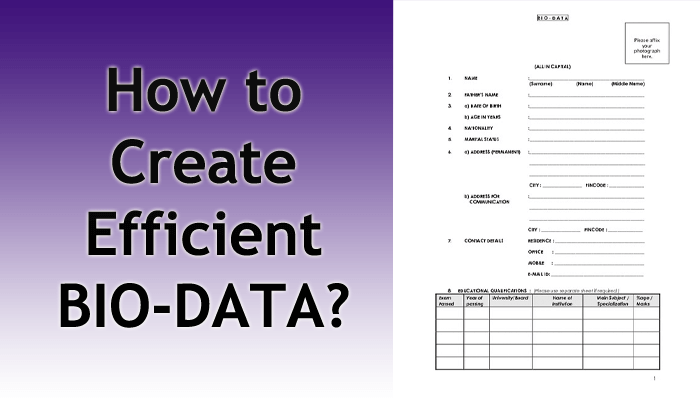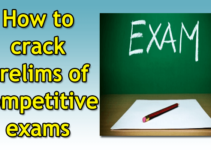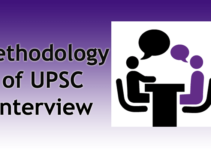The very first step in preparing for an interview is to prepare a detailed bio-data of oneself. Quite a few recruitment boards themselves prescribe a bio-data form in which case it would be advisable to keep a copy thereof for the purpose of preparation for an interview, but in cases where the copy of bio-data has not been retained or the bio-data form is very brief it would be advisable to prepare a detailed bio-data on the proforma given. This bio-data can also be utilised for submitting applications where the recruiting organisations have not themselves prescribed a form. However, care should be taken not to include those activities under each category where there is no significant participation. For example, if the candidate has not been participating in NCC, NSS or any other group activities, it would be preferable to omit that column altogether rather than indicate absence of activities under that head. Obviously, the effort should be to project as good an image of oneself as possible without suppressing the facts.
The importance of preparing a bio-data form carefully and meticulously cannot be over-emphasised. In this connection, it is noteworthy that members of interview boards do not normally plan questions to be asked from various candidates in advance. The questions flow from the bio-data form as the candidate enters the room. It is as if the appearance of the candidate and his bio-data constitute a stimulus to the members of the boards, who react to the past record of the candidate as well as to the answers given by him. In this context, it is vital to fill in the columns carefully and not consider any of them as unimportant for the purpose of preparation. Even simple statements like the name of the post, the name of the candidate, date of birth, marital status, address, etc., are important since preliminary questions, which are in the nature of small talk, could very well start on that basis. To give an example, there could be an opening question on the historical or religious significance of the name itself, or of the surname. There could be a question in cases where a candidate, though unemployed, is married. This is very often the case with candidates belonging to SC/ST. There could be a question on the advisability of such a practice. Similarly, candidates belonging to SC/ST could be asked questions regarding the significance of the expression Scheduled in the nomenclature. Questions could be asked about prominent persons in the past and present who have worked for the welfare and upliftment of these categories. So many questions could be asked on this matter and it would be advisable to prepare thereon. Similarly, the present and permanent address would indicate the geographical area in which the candidate has been living. An awareness of the socio-economic problems of that area could well be a subject of probe. In this connection, it is noteworthy that, in the beginning, the members of the board try to put the candidate at ease by asking questions or making remarks about facts which are very familiar to the candidate. But reactions to those observations throw a very useful light on the attitudes, value system, awareness, etc., of the candidate and, as such, require to be dealt with deftly.
At this stage, I would also specifically like to mention Column 12 of the bio-data form wherein the candidate is called upon to indicate his activities after discontinuing studies. My experience of interviewing a large number of candidates has been that they are most reluctant to indicate the employment taken by them which, in their view, may not be considered honourable by the board. It is a common experience that a large number of candidates belonging to lower middle-class families have to do part-time work as a Clerk, as a Cashier, as a Teacher etc. Sometimes even manual work like working in a field or carrying headloads or working as a labourer, etc. is not uncommon. Candidates are generally/often reluctant to mention these at all, thinking that this may prejudice the board against them. This is a totally erroneous impression. Honourable work in order to earn an honest livelihood is considered a positive factor since it is indicative of the desire of the candidate to stand on his own feet rather than draw from the already meagre family resources. It also shows grit, determination, capacity to rough out and such sterling qualities. This, however, should not lead candidates to think that they could bluff in this area by indicating activities in which they are not involved. It should be quite easy for the interview boards to find out whether the candidate is telling the truth or not by even the facial expression of the candidate, his demeanour, his body language, etc. Even small things would reveal the truth and nothing is worse than being found out that a candidate is deliberately lying.
Among other things, it must be specifically emphasised that candidates should not hesitate to mention any work experience that they may have had in the past or which they are having at present, however lowly it may appear to be. It has been my experience over long years that candidates who are involved doing work at a clerical or menial level or other laborious work, generally feel shy of mentioning it for fear of being looked down upon and rejected merely on that ground. I had occasions when candidates who had worked as cobblers and labourers in fields, carrying headloads or even taking tuitions or working as part-time clerks or typists were most reluctant to admit it. They do not fully realise that money earned through the sweat of one’s brow can never be dishonourable and no board can ever take adverse view thereof. On the contrary, interviewers look on favourably towards candidates who struggle through thick and thin and try to stand on their own feet by taking on whatever work is available. Selfmade persons are always considered very favourably.
BIOGRAPHICAL DATA
1. Name of the Post Applied for:
2. Name in Capitals :
3. Date of Birth :
4. Marital Status :
5. Category : Gen/SC/ST/Ex-Serviceman :
6. Address : Present : Permanent :
7. Academic Record commencing from Matriculation/Senior Secondary :
|
Exam. Passed |
Class |
Per- centage of Marks |
Year of Passing |
Medium of Instruction |
Subjects taken |
Board/ University |
Outstanding achievements,Ifany (mention prizes, medals, scholar-ships, stipend, etc.)
|
|
|
|
|
|
|
|
|
|
8. Details of work experience, if any (in backward chronological order, last one first and so on) :
|
Designation
|
Name of Organisation
|
Period
|
Salary Drawn
|
|
|
|
|
|
9. Participation in Games, Sports, Fine Arts, Debates, Essay Writing and others from school level onwards :
|
Description |
Period of Participation |
Represented School/ College/ University/State |
Outstanding Achievements, if any
|
|
|
|
|
|
10. Participation in NCC, NSS, Social Work, Mountaineering and other group activities :
|
Name of Group Activity |
Period of Participation |
School/College/University, etc. |
Outstanding Achievements, if any
|
|
|
|
|
|
11. Hobbies/Interests 12. What have you been doing since you discontinued your studies ?
Place :
Date :
Signature of Candidate






